In the intricate landscape of modern industrial operations, the demand for pristine fluid quality and air purity is paramount, directly influencing operational efficiency, equipment longevity, and product integrity. Central to achieving these stringent standards is the application of advanced filtration media, among which industrial filter paper stands out as a foundational component. This specialized medium, engineered with precision, plays a critical role across diverse sectors, from refining petrochemicals and purifying metalworking fluids to ensuring the purity in food and beverage production. Its fundamental purpose is to efficiently separate solid particulates from liquids or gases, preventing contamination, protecting machinery from abrasive wear, and enabling the recovery of valuable materials. The selection of the appropriate industrial filter paper is not merely a purchasing decision but a strategic engineering choice, requiring a deep understanding of its technical specifications, manufacturing processes, and compatibility with specific operational environments. As industries evolve towards greater sustainability and efficiency, the innovation in filter paper technology continues to deliver solutions that meet ever-tightening regulatory requirements and performance expectations, underscoring its indispensable nature in safeguarding industrial processes and environmental well-being. The continuous advancements in materials science and manufacturing techniques ensure that modern industrial filter paper offers unparalleled performance for even the most demanding filtration challenges, contributing significantly to reduced operational costs and improved overall system performance.
The effectiveness of an industrial filtration system hinges significantly on the quality and characteristics of its filter media, specifically the type of industrial filter paper employed. Factors such as micron rating, flow rate, wet strength, and chemical compatibility are crucial determinants of performance. For instance, a filter paper used in a highly corrosive chemical processing plant must exhibit exceptional chemical resistance to prevent degradation and potential contamination of the filtrate, while one in a high-volume metallurgical operation might prioritize high mechanical strength and thermal stability to withstand demanding flow conditions and elevated temperatures. Leading industrial filter paper manufacturers are constantly pushing the boundaries of material science and process engineering to produce filter papers that offer enhanced longevity, superior particulate retention even at sub-micron levels, and improved throughput while minimizing pressure drop. This commitment to innovation is driven by the industry's continuous pursuit of reduced operational costs, minimized waste generation, and heightened product quality. Understanding the nuances of different types of industrial filter paper, their specific applications, and the profound benefits they confer is essential for any technical professional or decision-maker seeking to optimize their filtration processes, thereby ensuring increased uptime, decreased maintenance requirements, and overall operational excellence within their facilities.
The production of high-performance industrial filter paper is a sophisticated manufacturing endeavor, blending advanced material science with precise engineering. The process typically begins with the meticulous selection of raw materials, which can include various cellulose fibers (such as purified wood pulp, cotton linters for high purity), synthetic fibers (like polypropylene, polyester, nylon for chemical resistance or specific mechanical properties), or even inorganic fibers (such as specialized glass fibers for high temperature or aggressive chemical environments), depending on the desired filtration characteristics and application environment. These fibers are chosen for their intrinsic properties, including specific surface area, inherent chemical resistance, thermal stability, and mechanical strength. Once selected, the fibers undergo a pulping and refining process to create a uniform slurry, where individual fibers are separated and conditioned. This slurry is then fed into a specialized paper-making machine, often employing a wet-laid process akin to traditional papermaking, where the fibers are evenly dispersed in water and then deposited onto a moving screen to form a continuous sheet. The uniformity of fiber distribution and consistency in grammage are paramount as they directly impact the paper's porosity, permeability, and ultimately, its filtration efficiency and dirt-holding capacity, ensuring consistent performance of the industrial filter paper.
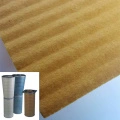
Figure 1: Simplified Manufacturing Process of Industrial Filter Paper.
During the sheet formation stage of industrial filter paper production, various additives, such as wet-strength resins (e.g., polyamide-epichlorohydrin resin for high wet strength), binders (e.g., acrylic or styrene-butadiene latex for improved mechanical properties), or sizing agents (for hydrophobicity), may be incorporated to enhance specific properties like burst strength, chemical resistance, or oleophobicity, tailoring the paper for demanding industrial applications. Following sheet formation, the paper undergoes a multi-stage drying process, carefully controlled to prevent warping or degradation of the fibrous structure, which could compromise filtration integrity. Subsequent steps often include calendering, where the paper is passed between polished rollers to compress the fibers, control thickness with micron-level precision, and precisely adjust pore size distribution and surface smoothness, which are critical for achieving specific micron ratings and flow characteristics. For highly specialized applications, post-treatment processes such as deep resin impregnation or advanced surface coating might be applied to impart additional properties like enhanced wet strength, improved chemical resistance against aggressive solvents, or specialized oleophobicity for oil-water separation. Quality control is rigorously integrated at every stage, from raw material inspection using techniques like Fourier-transform infrared spectroscopy (FTIR) for material identification to finished product testing according to international standards such as ISO 9001 for quality management and specific filtration performance standards like ISO 16889 (for hydraulic fluid power filters) or various ASTM methods for filter media testing. The operational longevity of filter paper is also a key consideration, often evaluated through accelerated aging tests and real-world application simulations to predict performance over extended periods. Applicable industries for these meticulously engineered papers are vast, including petrochemicals (e.g., oil and gas filtration, catalyst recovery, amine purification), metallurgy (e.g., precision coolant filtration, metalworking fluid purification to extend tool life), and water treatment (e.g., pre-filtration for reverse osmosis, effluent treatment for environmental compliance), where they consistently deliver advantages such as significant energy savings by maintaining system cleanliness and superior corrosion resistance by preventing particulate abrasion and chemical interaction with sensitive equipment components, thereby extending the lifespan of machinery and reducing maintenance overheads.
Selecting the optimal industrial filter paper for a specific application necessitates a thorough understanding of its technical parameters. These quantifiable parameters define the paper's performance capabilities and determine its suitability for various industrial demands, ensuring peak operational efficiency and contaminant removal. One of the most critical specifications is the Micron Rating, which indicates the nominal or absolute size of particles that the filter paper can efficiently capture. A nominal micron rating typically signifies the size of particles retained at a certain high efficiency (e.g., 90% or 95% at a given micron size), while an absolute rating defines the size of the smallest particle retained at near 100% efficiency, usually determined by a single-pass or multi-pass test using specific particle sizes. The Flow Rate, often expressed in liters per minute per square meter (LPM/m²) or gallons per minute per square foot (GPM/ft²) at a specific pressure differential and fluid viscosity, measures how quickly a fluid can pass through the filter paper. A higher flow rate is desirable for high-volume processes to minimize process bottlenecks, but it must always be balanced with the required filtration efficiency to prevent bypass or incomplete contaminant removal. Wet Strength is another vital parameter, particularly for liquid filtration applications, referring to the paper's ability to retain its mechanical integrity, resist tearing or bursting, and maintain its filtration efficiency when fully saturated with fluid under operational pressure. This property is often significantly enhanced through the incorporation of specialized wet-strength resins and advanced bonding techniques during manufacturing of the industrial filter paper.
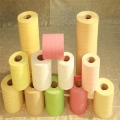
Figure 2: Illustrative image of technical filter paper specifications.
Beyond these, Chemical Compatibility is paramount for applications involving corrosive fluids, strong acids, alkalis, or reactive solvents; the filter paper's material composition must withstand chemical attack without degrading, dissolving, or leaching undesirable contaminants into the filtrate. Temperature Resistance defines the maximum continuous operating temperature and short-term peak temperature the paper can endure without compromising its structural integrity, mechanical strength, or filtration performance due to thermal degradation. Thickness and Basis Weight (mass per unit area, often in grams per square meter or gsm) are physical attributes that directly influence the paper's dirt-holding capacity and overall mechanical strength. A thicker paper generally offers higher dirt-holding capacity, leading to longer service life and fewer change-outs, but may also result in a higher initial pressure drop across the filter media, requiring more pump energy. Pore Size Distribution, often analyzed using advanced techniques like mercury intrusion porosimetry or capillary flow porometry, provides a detailed understanding of the range and average size of pores within the filter matrix, directly impacting filtration efficiency, particle retention capabilities, and throughput characteristics. Reputable industrial filter paper manufacturers and suppliers typically provide detailed specification sheets for their products, enabling engineers and procurement specialists to make informed decisions based on their specific process requirements, ensuring optimal filtration performance and maximum cost-effectiveness over the entire operational lifespan of the filter system.
The versatility and efficacy of industrial filter paper extend across a multitude of industrial sectors, each benefiting from its specific filtration capabilities, which are tailored to the unique demands of their processes. In the Petrochemical Industry, for instance, filter paper is indispensable for critical processes such as fuel and lubricant filtration, crude oil dewatering, the removal of impurities from chemical intermediates, and even in the recovery of valuable catalysts. Its application here ensures the integrity and purity of refined products, prevents costly equipment fouling and corrosion in heat exchangers and pipelines, and helps maintain strict product specifications, directly leading to enhanced operational safety, reduced downtime, and improved process efficiency. For the Metallurgy Sector, particularly in metalworking, grinding, and machining operations, high-performance industrial filter paper is critical for purifying coolants and cutting fluids. By effectively removing abrasive metal fines, swarf, and tramp oils that accumulate during manufacturing, it significantly extends the lifespan of expensive cutting tools, improves the surface finish quality on manufactured parts, and drastically reduces the need for frequent fluid changes, thereby lowering disposal costs and promoting a more sustainable and environmentally compliant production environment. In Water and Wastewater Treatment, industrial filter paper serves as a vital component in pre-filtration stages, efficiently removing suspended solids, colloids, and larger particulates before more advanced purification processes (like ultrafiltration or reverse osmosis), safeguarding downstream equipment like sensitive membranes and ion exchange resins, and contributing to the efficient production of potable, process, or reclaimed water.

Figure 3: Industrial Filter Paper ensuring fluid purity in diverse sectors.
Beyond these crucial sectors, industrial filter paper also finds extensive use in the Food and Beverage Industry for clarifying liquids like edible oils, wines, beers, and fruit juices, ensuring product clarity, stability, and taste while adhering to stringent food-grade standards and regulatory compliance (e.g., FDA 21 CFR compliance for certain media types). In the Pharmaceutical Sector, it is absolutely crucial for critical liquid filtration processes, including sterile filtration, active pharmaceutical ingredient (API) purification, and precise particle removal from drug formulations, where the highest levels of purity and reproducibility are demanded. The inherent advantages of utilizing high-quality industrial filter paper are manifold and contribute significantly to overall operational excellence. Firstly, it leads to significant Energy Savings; by consistently maintaining fluid cleanliness, pumps, compressors, and other fluid-handling equipment operate more efficiently with reduced resistance and friction, thereby decreasing power consumption and extending the lifespan of critical components. Secondly, its robust construction, tailored porosity, and chemical inertness contribute to superior Corrosion Resistance and comprehensive protection against abrasive wear for valuable machinery, extending equipment lifespan and minimizing costly unscheduled downtime and repairs. This robust filtration also means fewer system failures, reduced maintenance cycles, and a more stable operating environment. Furthermore, the ability of industrial filter paper manufacturers to customize filter paper for highly specific applications, considering factors like precise material compatibility, target pore size, mechanical strength requirements, and chemical resistance, ensures optimal performance, contributing to higher product quality, stringent environmental compliance, and overall operational excellence across a wide array of demanding industries.
The global market for industrial filter paper is characterized by a diverse ecosystem of industrial filter paper manufacturers and industrial filter paper suppliers, each bringing unique strengths in terms of product range, technological innovation, and comprehensive service capabilities. When evaluating potential partners, industrial decision-makers must look beyond mere product specifications to assess a manufacturer's deep expertise, proven track record, and unwavering commitment to quality and customer success. Leading manufacturers often distinguish themselves through significant investment in advanced research and development, allowing them to consistently produce industrial filter papers with superior performance characteristics, such as enhanced dirt-holding capacity, significantly lower initial and differential pressure drop, or vastly improved chemical and thermal resistance for extreme operating conditions. They typically adhere to rigorous quality management systems, evidenced by internationally recognized certifications like ISO 9001 (Quality Management System) and often ISO 14001 (Environmental Management System), which collectively ensure consistent product quality from batch to batch and demonstrate responsible manufacturing practices. Furthermore, the accumulated experience of a manufacturer, often measured by their years in service and the breadth and depth of their client portfolio, provides a strong indicator of their reliability, problem-solving capabilities, and ability to deliver proven, effective solutions across various complex industrial applications. A manufacturer with a long history of serving diverse sectors like automotive, chemical processing, electronics, and pharmaceuticals, demonstrates a profound understanding of varied filtration challenges and the nuanced requirements of each industry, making them a more reliable long-term partner for your industrial filter paper needs.
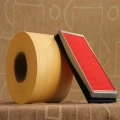
Figure 4: A global network of industrial filter paper suppliers.
Beyond standard catalog offerings, the ability of reputable industrial filter paper manufacturers to provide truly customized solutions is a significant differentiator in today's highly specialized industrial landscape. Many industrial processes have unique or highly specific filtration requirements that simply cannot be adequately met by off-the-shelf products, necessitating a bespoke approach. Customization might involve tailoring the industrial filter paper's material composition (e.g., a precise blend of cellulose, synthetic, and specialty fibers to achieve optimal performance), adjusting its thickness or basis weight for enhanced dirt-holding capacity or reduced pressure drop, engineering a precise pore size distribution for specialized sub-micron particle removal, or applying specific surface treatments for enhanced performance in challenging chemical environments or for specific fluid interactions (e.g., oleophobic or hydrophilic properties). A truly collaborative approach, where the manufacturer's R&D and engineering teams work closely with the client's process engineering and technical teams, is often key to successfully developing and implementing these bespoke solutions. This in-depth collaboration includes thoroughly understanding the specific fluid properties, operating temperatures, pressure differentials, target contaminant profiles, and desired filtration efficiencies. Reputable industrial filter paper suppliers also offer comprehensive technical support, including laboratory-scale testing, pilot studies in simulated environments, and expert on-site consultation, to ensure the customized industrial filter paper integrates seamlessly into existing systems and delivers measurable improvements in process efficiency, product quality, and cost-effectiveness. This level of partnership transforms a transactional relationship into a strategic alliance, which is absolutely essential for long-term operational success and maintaining a competitive edge in complex industrial markets.
The real-world impact and tangible benefits of high-quality industrial filter paper are best illustrated through compelling application scenarios and demonstrable customer success stories. For instance, consider a large-scale automotive manufacturing plant specializing in engine component machining. A strategic switch from a generic filter media to a high-efficiency cellulose-synthetic blend industrial filter paper, specifically engineered for coolant filtration, resulted in a remarkable 30% reduction in abrasive particle accumulation within machining fluid sumps. This direct improvement in fluid cleanliness significantly extended the lifespan of expensive cutting tools by an average of 15%, decreased the frequency of costly fluid change-outs by 25%, and markedly improved the surface finish quality of critical engine components, leading to a substantial decrease in rework and scrap rates. Another compelling example comes from a leading pharmaceutical company, where the implementation of a specialized medical-grade industrial filter paper for the clarification of a sensitive active pharmaceutical ingredient (API) ensured unprecedented sterility and particle-free formulations, which is paramount for patient safety and drug efficacy. This critical transition, supported by comprehensive validation and strict adherence to FDA guidelines for material purity and process integrity, reduced batch rejection rates by a critical 5% and significantly accelerated regulatory approval processes for new drug products. These real-world cases emphatically underscore how the meticulous selection and expert application of advanced industrial filter paper, guided by experienced industrial filter paper suppliers, can translate directly into tangible economic benefits, enhanced product quality, and overall operational excellence across diverse and demanding industrial environments.
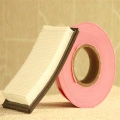
Figure 5: Industrial Filter Paper optimizing processes in a manufacturing facility.
The authority and trustworthiness of a provider of industrial filter paper are established not only through superior product performance but also through rigorous industry certifications, strategic partnerships, and transparent service commitments that build long-term client confidence. Reputable companies consistently achieve and actively maintain certifications such as ISO 9001 (Quality Management System), demonstrating their unwavering commitment to consistent product quality and customer satisfaction, and, where applicable, ISO 14001 (Environmental Management System), showcasing their dedication to sustainable practices. Furthermore, strong affiliations with leading industry associations and a long-standing service record, often spanning decades of dedicated service, provide strong, irrefutable evidence of their authoritative standing and deep-rooted experience in the complex domain of industrial filtration. For instance, a company with 20+ years of dedicated service in providing high-performance industrial filtration solutions and strategic collaborations with major original equipment manufacturers (OEMs) brings unparalleled insights and consistently reliable solutions. Comprehensive testing data, including multi-pass efficiency tests (e.g., according to ISO 16889 for hydraulic filters) and detailed particle count analyses (e.g., using optical particle counters), are often meticulously provided to substantiate all performance claims, fostering profound confidence among highly discerning technical buyers and procurement specialists. This unwavering commitment to transparency and verifiable data is absolutely critical for B2B decision-makers, ensuring that significant investments in industrial filter paper lead to predictable, superior operational outcomes, effectively reducing risks, and maximizing the return on investment over the entire lifecycle of their filtration systems.
Building and sustaining trust with discerning B2B clients in the specialized field of industrial filtration hinges on clear, proactive communication, robust support systems, and transparent business practices. A comprehensive Frequently Asked Questions (FAQ) section on a supplier's platform or documentation provides immediate, accessible answers to common technical queries regarding industrial filter paper, covering a wide range of topics such as material compatibility for specific chemicals, precise micron rating interpretation, optimal storage conditions to maintain product integrity, and practical troubleshooting steps for common filtration issues like premature clogging or pressure drops. This proactive approach helps clients quickly understand product capabilities, resolve minor operational challenges without needing direct intervention, and significantly enhances overall user experience and confidence in the product and supplier. Regarding Delivery Cycle, leading industrial filter paper suppliers prioritize efficient and reliable logistics. They often operate with strategically located warehouses, both domestically and internationally, coupled with robust supply chain management systems utilizing advanced forecasting and inventory optimization to ensure timely delivery, especially for critical industrial applications where even minimal downtime translates to significant financial losses. Typical delivery times can range from 3-5 business days for standard stock items to 4-8 weeks for highly customized orders, depending on the complexity of manufacturing, required testing, and specific shipping routes. Clear and transparent communication about lead times, order tracking, and any potential logistical challenges is a hallmark of a truly reliable and customer-centric supplier of industrial filter paper.
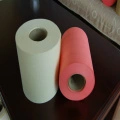
Figure 6: Dedicated support for industrial filter paper users.
Furthermore, a clear, comprehensive, and readily accessible Quality Assurance and Warranty Commitment is absolutely fundamental for establishing deep trustworthiness in the B2B sector. Reputable industrial filter paper manufacturers and suppliers unequivocally stand behind their products, offering robust warranties that cover material defects, manufacturing flaws, and in many cases, performance guarantees, providing invaluable peace of mind to the end-user. This commitment often extends to guaranteeing that the industrial filter paper will meet its specified filtration efficiency, flow rate, and mechanical integrity under defined operating conditions for a stated period. Should any unforeseen issues or challenges arise, a dedicated and highly responsive Customer Support Team, comprising seasoned technical experts and experienced service professionals, is crucial. This team provides prompt and insightful assistance for product selection guidance, detailed application advice, systematic troubleshooting of operational issues, and comprehensive post-sales support, ensuring optimal product integration and performance. Their specialized expertise can be invaluable in optimizing filtration processes, resolving unexpected challenges efficiently, and even assisting with proper disposal practices in line with complex environmental regulations, which is increasingly important for sustainable industrial operations. This holistic approach to support, extending from the initial inquiry through the entire product lifecycle, not only builds strong, enduring client relationships but also profoundly reinforces the supplier's reliability, authoritative expertise, and unwavering commitment to providing high-performance industrial filter paper solutions precisely tailored to the rigorous and ever-evolving demands of modern industry, thereby fostering long-term partnerships built on mutual trust and demonstrable success.
A: The appropriate micron rating for industrial filter paper depends critically on the size of the smallest particles you need to remove, the desired purity level of the filtered fluid or gas, and the specific sensitivity of any downstream equipment or processes. For precise recommendation, consider conducting fluid analysis and consulting our technical team with your detailed process requirements.
A: The service life of industrial filter paper varies significantly based on numerous factors, including the incoming contaminant load, the physical and chemical properties of the fluid being filtered, actual operating temperature and pressure, and the specific type and construction of the filter paper. Regular monitoring of the pressure differential across the filter is typically the most reliable indicator for determining when replacement is needed, indicating the filter's dirt-holding capacity has been reached.
A: Absolutely. Many leading industrial filter paper manufacturers, including ourselves, specialize in offering highly customized solutions. This can involve tailoring the paper's material composition (e.g., specific fiber blends), adjusting thickness or basis weight for optimal performance, engineering a precise pore size distribution, or applying specific surface treatments to meet unique process demands, such as extreme chemical resistance or specific flow characteristics. Please contact us directly with your specific requirements for a tailored assessment.
A: The appropriate and safe disposal methods for used industrial filter paper depend entirely on the nature of the contaminants captured by the filter medium. If the filter paper has absorbed hazardous chemicals, heavy metals, or biological agents, it must be disposed of as hazardous waste following strict local, national, and international environmental regulations and industry best practices for waste management. Always consult with relevant regulatory bodies and waste disposal experts to ensure compliance.
In summary, industrial filter paper remains an indispensable cornerstone of efficient, reliable, and sustainable industrial operations across a comprehensive spectrum of sectors, from heavy industry to sensitive pharmaceutical production. Its foundational role in ensuring fluid purity, protecting valuable and complex equipment from premature wear, and maintaining product integrity and consistency cannot be overstated in today's demanding manufacturing landscape. From the meticulous selection of raw materials, through advanced and precision-controlled manufacturing processes, to stringent, multi-stage quality control protocols, every stage of its production is meticulously geared towards delivering high-performance filtration media that consistently meet and exceed the evolving demands and increasingly strict regulatory requirements of modern industry. The precise definition and understanding of technical parameters, including micron rating, flow rate, chemical compatibility, and wet strength, are critical determinants that guide optimal selection, ensuring that each unique application benefits from truly tailored filtration solutions that maximize efficiency and minimize operational costs. As industries worldwide continue to strive for higher levels of operational efficiency, greater environmental sustainability, and unwavering compliance with increasingly strict environmental and safety regulations, the continuous innovation in industrial filter paper technology will undoubtedly play an even more crucial role in enabling these advancements. Partnering with reputable industrial filter paper manufacturers and industrial filter paper suppliers who demonstrate profound expertise, offer flexible customization capabilities, and provide robust, responsive technical support is absolutely paramount for achieving long-term operational success, mitigating risks, and sustaining a crucial competitive advantage in today's dynamic and challenging industrial landscape, ensuring cleaner processes and superior end products.
Thickness:0.2-6 mm or Customized
Strand Thickness:0.5-8mm
Swd:2.5-100mm Lwd: 4.5-200mm
Surface Treatment:Powder Coated,Galvanized
MATERAL: PHENOLIC PAPER
MELT-BLOWN PBT
NON-WONEN LAMINATES
DIESEL FUEL FINE FILTERATION GRADE
APPLICATION : FUEL OIL WATER SEPERATION FILTER MEDIA
Material: Electrostatic cotton with activated carbon
PET/PP with Activated Carbon
Basic weight: 200-800g/m2
Application: Cabin Air Filters Panel Air Filters, Filter Cartridge, etc.
RAW MATERIAL: Polypropylene
PROCESS TECHNOLOGY: Melt-blown non-woven
RANGE OF EFFICIENCY: M5 ~ H11
Aug,2025,14
Aug,2025,14
Email to this supplier

